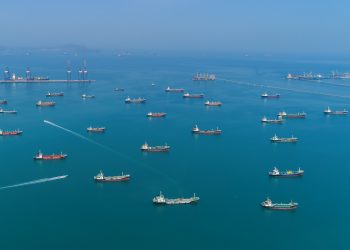 While attending the INTERTANKO’s Hellenic Mediterranean Panel as the guest speaker, Andreas Chrysostomou, the Chairman of the IMO’s Marine Environment Protection Committee (MEPC), informed the panel attendees of the excellent leadership that INTERTANKO had demonstrated at the 64th session of the Committee on the subject of ballast water management.
While attending the INTERTANKO’s Hellenic Mediterranean Panel as the guest speaker, Andreas Chrysostomou, the Chairman of the IMO’s Marine Environment Protection Committee (MEPC), informed the panel attendees of the excellent leadership that INTERTANKO had demonstrated at the 64th session of the Committee on the subject of ballast water management.
“The MEPC 64 paper that was initiated by INTERTANKO and cosponsored by a number of major flag states and industry associations was extremely constructive and a positive, effective contribution to the Committee’s debate on ballast water management,” said Chrysostomou.
He went on to say “that by clearly identifying the major challenges to effective implementation of the IMO Ballast Water Management Convention, the Committee was able to properly address each of the concerns raised in that paper, hoping that this clarification may result in further ratification of the Convention, so it will enter into force soon.”
INTERTANKO believes the outcome of MEPC could pave the way for more confidence in the application of Ballast Water Convention type approval and implementations processes. INTERTANKO submitted a comprehensive paper on the current challenges and concerns with the current BWM Convention to IMO’s MEPC meeting covering the type approval of BWMS, the implementation/installation schedule for BWMS, the treatment of existing ships, and sampling and analysis procedures by port state control.
INTERTANKO’s submission to MEPC 64 of the paper ‘MEPC 64/2/18’ containing four main proposals, drew positive and constructive responses from MEPC which are wholeheartedly welcomed by INTERTANKO:
Proposal 1: Improve transparency and ensure appropriate robustness of BWMS by revising the Guidelines for approval of ballast water management systems (G8).
Response 1: MEPC noted that the BWM Review Group agreed not to revise the G8 guidelines at this time, BUT MEPC agreed to instruct the Bulk Liquids and Gases Sub-committee (BLG) to provide additional guidance on the application of the G8 guidelines to address the issues raised in the INTERTANKO submission and invite Member States and observers to submit relevant proposals in this respect.
Proposal 2: Adjust the installation requirements for BWMS through an Assembly resolution to provide for a smoother implementation schedule.
Response 2: MEPC established a correspondence group, led by Japan, to develop a draft IMO Assembly Resolution in relation to the implementation of regulation B-3 of the BWM Convention. This in effect should see a more realistic and practical implementation schedule for the Convention.
Proposal 3: Approve an MEPC Circular that ensures that all Flag States and Port States accept the agreement reached at MEPC 63 regarding the survey and certification of existing ships.
Response 3: MEPC approved an MEPC circular on issuance of BWM Certificates prior to entry into force of the BWM Convention.
Proposal 4: Instruct BLG that sampling and analysis procedures for port state control purposes do not exceed BWMS approval requirements.
Response 4: MEPC agreed to instruct the BLG and Flag State Implementation (FSI) Sub-committees that sampling and analysis procedures for port state control should be no more stringent than what is required for type approval of BWMS.
In the same week, INTERTANKO Members were given a first-hand review of what happened at MEPC by the Senior Project Officer, Environmental Protection, Marine Environment, Training & Statistics at the European Maritime Safety Agency (EMSA), Brian Elliott, who chairs the IMO Correspondence Group on the development of Port State Control sampling and analysis guidelines (see article below).
To enter into force, the BWM Convention, which was unanimously adopted at an IMO Conference in 2004, requires ratification by 30 countries representing 35% of the world’s gross tonnage. Currently, 36 countries representing 29.07% of world tonnage have ratified the convention.
This tight timescale for compliance by the world fleet of 70,000 ships has prompted INTERTANKO to work tirelessly to encourage discussion, and to achieve results, at IMO on these specific issues that are criticial to its Members – particularly the type approval of, and the implementation/installation schedule for, BWMS.
INTERTANKO’s Managing Director, Kathi Stanzel, stated at the Hellenic Panel meeting, “It now requires further work by INTERTANKO to ensure the momentum on this issue is maintained and that we can ensure a successful follow-up on the initiatives launched at MEPC”.
Source:INTERTANKO



























































